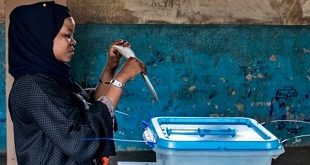
Greg Metcalf has been at the helm of the Nile Breweries Limited, a subsidiary of AB InBev based in Belgium since 2014. He spoke to The Independent’s Isaac Khisa on the prospects of Uganda’s beer market.
What is your assessment of beer market in Uganda?
The market has been very tough especially in 2016 since the election. This has been a common theme for business in the country. Our view has however not changed, we still see Uganda as a big potential growth market in the long term. People tend to believe beer is bullet proof that people will drink anyway but that is not true, that is just urban legend. The reality is that when times are tough and money is short, beer is the first thing you are going to cut back on.
You have been at the helm of NBL in last three years. How do you describe your achievement at the company?
Generally in the time I have been here we have done very well. We have been able to grow our sales volumes by around 30%, and that being after a period between 2012 and 2014 when volumes had actually been in decline. We have also increased our market share from around 55% to an impressive 59%. This is measured independently by a retail audit organisation called Frontline, so it’s not just an empty claim.
In particular that our mainstream brands Nile Special and Club have really delivered excellent performance over the 2 years. We have also had good performance from our premium brands particularly Castle Lite which has grown phenomenally in the past 18 months. For many years our growth was mostly dependent on affordable brands like Eagle Lager. Eagle has been a spectacular success but we are happier now that our other brands are also contributing to growth.
Affordable beers are the most susceptible to economic constraints. That is because consumers of affordable beers are the ones with less money. When the economy is tough they are the ones who tend to migrate back to informal alcohol. That migration is bad for the business, but it’s also bad for the country. Unlike beers, informal alcohols don’t contribute to the taxation pool, so when consumers drift back to them the government actually loses revenue. Also these informal alcohols lack any kind of regulation so they can often be dangerous.
What have you done in winning over consumers from informal alcohol given the drop in consumption of affordable beer?
Winning customers over has been our strategy for 15 years. Eagle Lager was launched with that strategy in mind and it is one of the most fascinating stories of beer worldwide. It is a case study shown all over the world. It is important because it has a different level of excise duty from normal beer because it is made from local ingredients – mainly sorghum but also some local barley, maize and cassava is used. When the project was initiated, using sorghum to make beer was a very unusual concept. The idea was to buy the sorghum from local farmers and pitch that beer to appeal to people drinking informal alcohol. This means we were creating income for farmers and they in turn would have money to spend which then rolls into the economy. Eagle has become one of the most selling beers not only in Uganda but in Africa. In 2015 government raised excise duty on affordable beer from 20% to 30% which made the beer just on the edge of affordability for these consumers especially in a tough year. I believe we can’t just keep doing what we are doing. Taxes are a bit higher so we have to do something different.
 The Independent Uganda: You get the Truth we Pay the Price
The Independent Uganda: You get the Truth we Pay the Price


